







Read More
Bachelor of Technology in Computer Science and Engineering is an Under Graduate Degree awarded for the programme in the area of Computer Science and Engineering. As one of the best computer engineering colleges, we intend to create a cohesive learning experience with the latest technological developments to that of industry demand.
Year wise Course Details
Courses for this semester
The Linear Algebra and Univariate Calculus course offers a comprehensive introduction to two fundamental areas of mathematics. It covers topics in Linear Algebra, such as vector spaces, matrices, determinants, linear transformations, eigenvalues, and eigenvectors, which are essential for solving systems of equations and modeling various phenomena. In Univariate Calculus, the course delves into differentiation and integration of single-variable functions, exploring concepts like limits, continuity, and their practical applications in optimization and area under curves. Together, these topics build a strong mathematical foundation for advanced studies in fields like engineering, physics, and data science.
1. To formulate simple algorithms for arithmetic and logical problems. 2. To test and execute the programs and correct syntax and logical errors. 3. To design code on the basis of logic to solve problems in C programming
This course explores fundamental principles of electrical engineering, including circuit analysis, electromagnetism, and electronic devices, through theoretical study and practical laboratory experiments.
The "Practical Workshop for Engineers" course provides a hands-on learning experience designed to equip participants with essential skills and knowledge in various engineering practices. This course covers a range of topics, including machining, welding, electronics, and materials testing, allowing participants to gain practical experience with tools, equipment, and techniques used in the engineering field. Through a combination of theoretical instruction and practical exercises, students will learn to apply engineering principles in real-world scenarios, fostering problem-solving skills and teamwork. The course aims to bridge the gap between theoretical knowledge and practical application, preparing engineers for the challenges of their professions.
Course Objectives (Minimum 3) 1. Actively engage in diverse club activities (dance, music, photography, drama, literacy) to foster personal development. 2. Participate enthusiastically in workshops and competitions, enhancing practical skills and competitive spirit. 3. Develop proficiency to represent ADTU effectively in inter-university and national competitions, showcasing leadership and teamwork. 4. Gain insights and skills from industry experts through workshops, enhancing professional competence and career readiness.
Introduction to Java is going to offer various knowledge on Java object Oriented Programming with Javac and Java Command
Courses for this semester
This course provides a comprehensive exploration of the ethical considerations and social implications associated with the rapid advancements in technology and engineering. Students will engage with theoretical frameworks, case studies, and practical applications to develop a nuanced understanding of the ethical responsibilities inherent in designing, developing, and deploying technology. The course emphasizes critical thinking, responsible decision-making, and a holistic approach to addressing the ethical challenges posed by emerging technologies.
This extracurricular course offers students an opportunity to delve into the fascinating world of emerging technologies and their societal impact. Participants will explore cutting-edge advancements in various fields, from artificial intelligence to biotechnology, and engage in thought-provoking discussions on the ethical, social, and economic implications of these technologies. The course aims to inspire curiosity, critical thinking, and informed perspectives on the role of innovation in shaping our future.
This course is mainly about the methods for the solution of such equations. The focus of attention is on the methods applicable to a class of equations, and also on those specialized for an individual equation with important applications applications.
To impart a sound knowledge on the principles of chemistry involving the different application oriented topics required for all engineering branches.
This course is intended to develop anunderstanding of electrical and Electronics models and its analysis at Basic Electrical components, Basic Circuit Designing; correction elements. The course also indulges semiconductor fabrication, and different types of communication systems.
This course offers designing and developing applications involving Object Oriented Programming concepts such as inheritance, association, aggregation, composition, polymorphism, abstract classes and interfaces using Java. It also covers designing and building multi-threaded Java Applications etc.
This immersive and experiential course offers students a unique opportunity to delve into the realm of computer networking fundamentals through a fully practical and outreach-oriented approach. Grounded in real-world applications and scenarios, participants will engage in hands-on activities, field exercises, and community outreach initiatives to develop a comprehensive understanding of the core concepts and practices in computer networking.
Courses for this semester
The objective of the Digital Electronics course is to provide students with a fundamental understanding of digital circuits, logic design, and their applications in modern electronic systems
Functional Programming in Python explores core concepts like immutability, first-class functions, and recursion. Learn to write clean, efficient, and reusable code using Python's functional programming features and libraries.
Data Structure and Algorithm explores fundamental concepts such as arrays, linked lists, stacks, queues, trees, graphs, sorting, and searching algorithms, providing a strong foundation for efficient problem-solving and programming.
The course explores global leadership strategies, cultural dynamics, and organizational behavior, equipping students with skills to navigate diverse work environments and enhance team effectiveness in an international context.
Computer Organization and Architecture" course explores the fundamental concepts of computer systems, covering hardware components, data representation, instruction sets, memory hierarchy, CPU design, input/output mechanisms, and performance optimization techniques.
This course introduces the fundamental concepts of probability and statistics, covering topics such as probability theory, distributions, hypothesis testing, estimation, and regression analysis, with practical applications in various fields.
Field-based training offers hands-on experience in a real-world environment, bridging theory with practice. It enhances practical skills, problem-solving, and adaptability, providing learners with valuable, industry-relevant knowledge and experience.
This course is designed to develop skills and interests through participation in diverse extracurricular and co-curricular activities, learn about teamwork and leadership abilities by engaging students in club-led events and competitions, and to provide opportunities for personal growth and practical learning beyond the academic curriculum.
Courses for this semester
This course provides a comprehensive introduction to the principles, processes, and practices of software engineering. Students will explore the Software Development Life Cycle (SDLC), covering phases from requirement engineering to design, development, testing, and maintenance. The curriculum emphasizes scalable, maintainable software design principles, object-oriented design, and software architecture styles.
This course provides an in-depth exploration of Artificial Intelligence (AI), its principles, methodologies, and applications. It covers fundamental topics such as machine learning, natural language processing, computer vision, robotics, and knowledge representation. Students will gain hands-on experience with AI algorithms and tools, learning to develop intelligent systems capable of solving complex real-world problems.
The Operating System (OS) course provides a comprehensive introduction to the principles, design, and implementation of modern operating systems. Students explore the critical role of the OS as an interface between hardware and software, enabling efficient and secure resource management. Key topics include process management, memory management, file systems, I/O systems, and synchronization mechanisms.
Courses for this semester
-
-This course provides a comprehensive understanding of Database Management Systems (DBMS). It covers the fundamental concepts, design principles, and practical applications of databases. Students will gain skills to design, implement, and manage databases effectively.
This course presents several basic ideas in automata theory and formal languages, such as grammar, finite automaton, regular expression, formal language, pushdown automaton, and Turing machine. This course not only contains the fundamental models of computation but also the building blocks of numerous subfields of computer science, such as concurrent systems, software engineering, compilers, etc.
This course offers designing and developing applications involving Object Oriented Programming concepts such as inheritance, association, aggregation, composition, polymorphism, abstract classes and interfaces using Java. It also covers designing and building multi-threaded Java Applications etc.
1. Introduce the field of artificial neural networks and deep learning algorithms, the problem settings, and their applications to solve real world problems. 2. Understand the motivation for different neural network architectures and select the appropriate architecture for a given problem 3. Promote further deep learning on the topics of artificial neural networks and deep learning
-The objective of this course is to familiarize the students with the basic concept of data and to work with various kinds of data and statistical data. It aims to presents a perfect blend of machine learning, big data analytics, and statistics, the programme helps you gain experience in solving problems with real-world data.
-
-
-
-
Courses for this semester
Compiler Design is essential for anyone involved in the development of programming languages, compilers, or related tools. It provides a deep understanding of how programming languages are translated into executable code and how optimization techniques can be applied to enhance program performance. This knowledge is valuable for compiler engineers, language designers, and anyone interested in low-level programming and system-level development.
This course provides an in-depth exploration of Artificial Intelligence (AI), its principles, methodologies, and applications. It covers fundamental topics such as machine learning, natural language processing, computer vision, robotics, and knowledge representation. Students will gain hands-on experience with AI algorithms and tools, learning to develop intelligent systems capable of solving complex real-world problems.
Machine Learning is a field of artificial intelligence that focuses on developing algorithms that can learn from and make predictions on data. The course covers fundamental concepts of machine learning, including supervised and unsupervised learning techniques, model evaluation, and practical implementation using Python. Students will learn to develop and deploy machine learning models for real-world applications while understanding the theoretical foundations and mathematical concepts behind these algorithms.
Courses for this semester
This course provides a comprehensive introduction to the MATLAB® technical computing environment. No prior programming experience or knowledge of MATLAB is assumed. Themes of data analysis, visualization, modeling, and programming are explored throughout the course.
Digital image processing deals with processing of images which are digital in nature. Study of the subject is motivated by three major applications. The first application is in improvement of pictorial information for human perception i.e. enhancing the quality of the image so that the image will have a better look. The second is for autonomous machine applications which have wider applications in industries, particularly for quality control in assembly automation and many similar applications. This course will introduce various image processing techniques, algorithms and their applications.
.Nanotechnology is an interdisciplinary field that deals with the manipulation and control of matter on an atomic and molecular scale, typically below 100 nanometers. This course introduces the fundamental concepts, principles, and applications of nanotechnology across various scientific and engineering domains. Students will explore the unique properties of nanomaterials, fabrication methods, characterization techniques, and their applications in industries such as electronics, healthcare, energy, and the environment.
Data Mining is the process of discovering patterns, trends, and useful information from large datasets. This course provides a comprehensive introduction to the concepts, techniques, and tools used in data mining. Students will learn how to preprocess data, identify patterns, and apply data mining methods to real-world problems in domains like business, healthcare, and social sciences. The course also explores recent advances in the field and ethical considerations surrounding data mining practices.
The course on Intellectual Property Rights (IPR) and Cyber Law provides an understanding of the legal frameworks that govern intellectual property and cyberspace. It equips students with knowledge of IPR concepts, the processes of patenting and copyright, and the implications of trademark protection. Additionally, the course covers the fundamentals of cyber law, focusing on legal issues related to internet use, data protection, cybercrimes, and electronic transactions. Students will gain insights into the role of law in fostering innovation, protecting rights, and maintaining cybersecurity in a digital world.
Courses for this semester
A neural network is a method in artificial intelligence that teaches computers to process data in a way that is inspired by the human brain. It is a type of machine learning process, called deep learning, that uses interconnected nodes or neurons in a layered structure that resembles the human brain. It creates an adaptive system that computers use to learn from their mistakes and improve continuously. Thus, artificial neural networks attempt to solve complicated problems, like summarizing documents or recognizing faces, with greater accuracy.

CST- Common scholarship test is a national and international level online MCQ based examination funded for intellectual empowerment by Assam down town University.
CST- Maximum enrolment each year is 120 seats and any 10+2 students can apply. Adtu is northeast India’s first placement driven university to provide 100% scholarship benefits worth 10 cr.
CST aims to inspire brilliant and competent students to pursue further education. Accredited with a prestigious grade by NAAC, UGC and AICTE.
Explore more scholarships that can help you reach out your goal with financial aid.
This scholarship is valid on the basis of the board/university examination
| 95% & above | 100% Scholarship on all semester |
| 90%-94.9% | 50% Scholarship on all semester |
| 80%-89.9% | 25% Scholarship on all semester |
This scholarship is valid on the basis of the board/university exam
| National & International Level | 100% Scholarship on all semester |
| State Level | 50% Scholarship on all semester |
| District Level | 25% Scholarship on all semester |
This scholarship is valid on the basis of the board/university exam
| National & International Level | 100% Scholarship on all semester |
| State Level | 50% Scholarship on all semester |
| District Level & NCC Certificate Holder | 25% Scholarship on all semester |
Discover a multitude of world-class amenities and cutting-edge resources at Assam down town University, enhancing your academic journey to new heights.
The Start-Up & Incubation Centre at Assam down town University provides a supportive environment for young entrepreneurs to develop and grow their business ideas. The center provides mentorship, funding, and networking opportunities to help innovative ideas become successful businesses.
SFURTI scheme to support rural entrepreneurs and innovators, an initiative by the Ministry of MSME
TIDE 2.0 scheme for ICT-based startups which provides a grant of Rs. 4L and Rs. 7L under EiR and Grant categories respectively, an initiative by the Ministry of MeitY.
dtVL Ideation, an incubation program for early-stage entrepreneurs with a market-ready solution/product, offering interest-free loans up to Rs. 2 lakhs.
Sprout UP, an incubation program for students, faculties, and researchers with innovative business ideas, prototypes, or technology solutions.




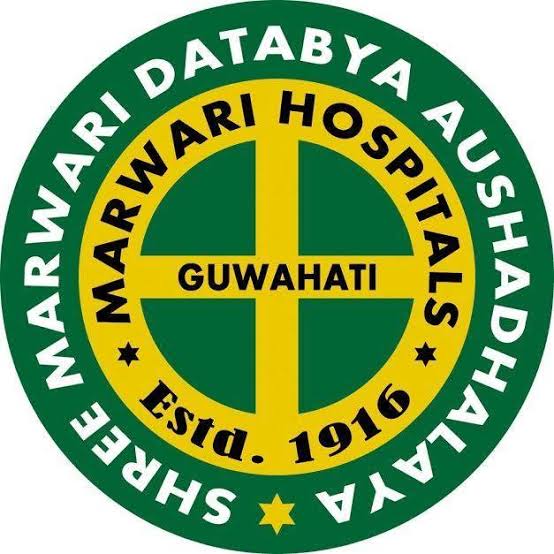

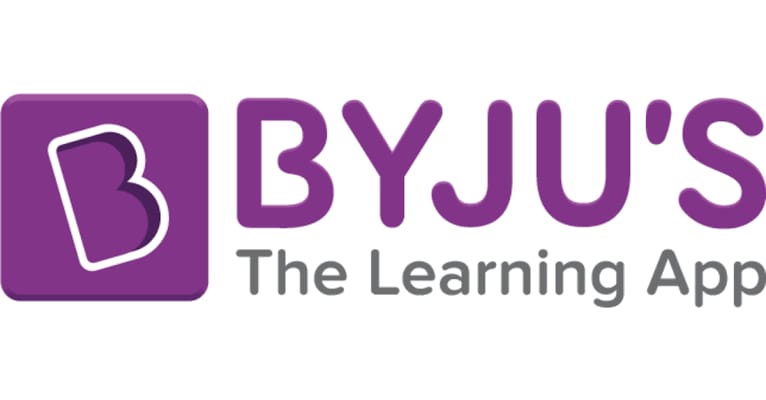

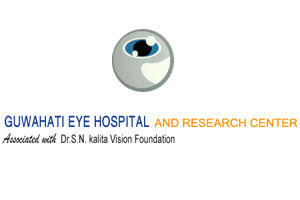



.jpg)






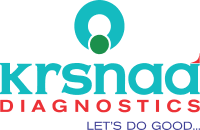


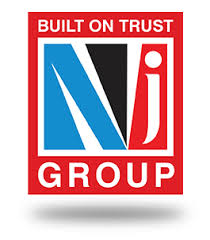


![24[7].ai 24[7].ai](https://adtu.in/files/247ai.jpg)






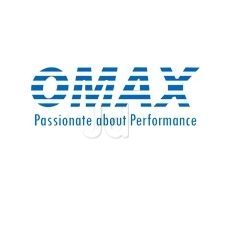



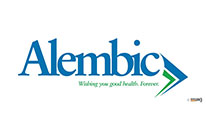











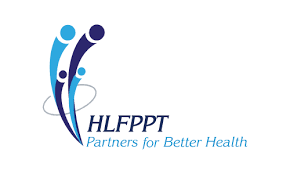

"I am a BBA student of 3rd semester. I hail from Bhutan. I vow that I am having a great experience i...
"AdtU is amazing. I am a BBA student of 2019-22 batch and I am just grateful for the amount of oppor...
Let us be grateful to the people and place who makes us happy. They are the charming gardeners whom ...
Currently I am pursuing MBA in Assam Down Town University. MBA is the professional course through wh...
AdtU is a university that focuses on giving knowledge, education and simultaneously making the stude...
The Assam downtown University has been a great learning experience. The university has provided me w...
My experience with AdtU has been splendid one indeed. Little needs to said about its scenic infrastr...
As a student I am very glad that I have got an opportunity to study here in Assam downtown universi...
My name is Sakhyajit Roy. I?m from Tripura. I joined the university on Auguest, 2017 as a student of...
I share immense pleasure to share my post graduate program experience in Assam down town University....
AdtU is a platform where I got golden opportunities to feed my zeal for knowledge through the dynami...
I am fortunate to get an opportunity to study here in Assam Downtown University. The best thing abou...
Our university is one of the best place for developing ourselves in the field of research and acedem...
ADTU is a university that is very good interms of infrastructure, academics and placements. Our tea...
It is one of best private colleges in North East India, it also provides a good environment for ed...
ADTU is a good University which provides the students with best quality lectures and ensures comfort...
The environment of Assam downtown university is very pleasant.The department of BMLT is very good a...
The university has all the necessary facilities and amenities for students . The classrooms and the ...
Assam downtown University is well recognised all over india. In the ongoing pandemic situation it ha...








